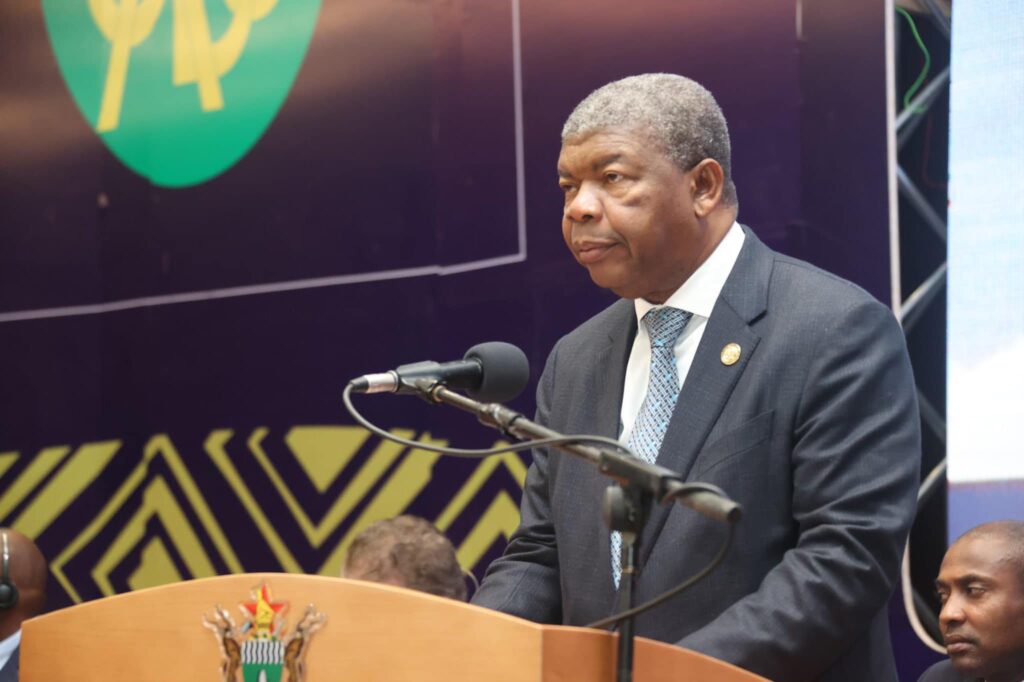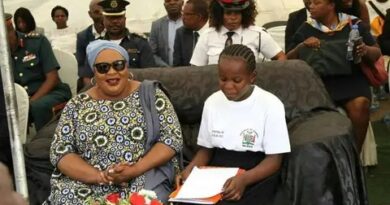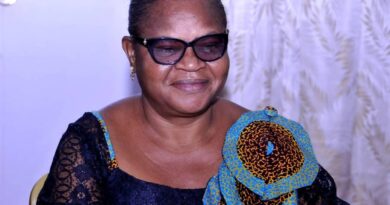SADC Summit 2024: President Lourenço Reflects on Achievements and Challenges as Angola Hands Over Chairship to Zimbabwe
On August 17, 2024, His Excellency Mr. João Manuel Gonçalves Lourenço, President of the Republic of Angola and outgoing Chairperson of SADC, delivered a pivotal address at the 44th Southern African Development Community (SADC) Summit of Heads of State and Government.
President Lourenço highlighted the significant progress made in industrialization, regional integration, and peacekeeping efforts. Held in Harare, Zimbabwe, this year’s summit gathered the region’s top leaders to reflect on achievements, address current challenges, and plan for the future.
President Lourenço opened his address by expressing his gratitude to President Emmerson Mnangagwa and the people of Zimbabwe for their exceptional hospitality in hosting the summit. He also warmly welcomed His Excellency Nangolo Mbumba, the newly inaugurated President of Namibia, who was attending his first SADC Summit following the passing of former President Hage G. Geingob.
In a poignant moment, President Lourenço paid tribute to the leaders and soldiers who passed away over the past year, including Vice-President Saulos Klaus Chilima of Malawi and former Tanzanian President Ali Hassan Mwinyi. He proposed a moment of silence in their honor, reflecting the deep loss felt across the region.
President Lourenço emphasized the importance of industrialization in driving regional integration and economic growth. He highlighted the adoption of the theme “Human and Financial Capital: The Key Drivers for Sustainable Industrialisation in the SADC Region” during Angola’s tenure as Chair, which focused on developing the skills necessary to thrive in the 4th Industrial Revolution and the digital economy.
Under his leadership, SADC worked closely with the Secretariat to promote key value chains in agriculture, pharmaceuticals, minerals, and consumer goods. This effort aimed to strengthen regional production capacities and create jobs, while also preparing the region for the challenges of digitalization.
Looking forward, President Lourenço expressed confidence in Zimbabwe’s leadership as the incoming Chair, with the new theme, “Promoting Innovation to Unlock Opportunities for Sustained Economic Growth and Development towards an Industrialised SADC,” set to continue driving progress. He stressed the need for the region to harness science, technology, and innovation as fundamental drivers for socio-economic transformation.
Despite the progress in industrialization, President Lourenço acknowledged the significant challenges that remain, particularly in infrastructure development. He highlighted the region’s annual infrastructure financing gap of $30-40 billion USD and called for urgent action to operationalize the Regional Development Fund (RDF). The RDF is crucial for supporting industrial, social, human, and infrastructure development, and for stimulating sustainable growth across the region.
President Lourenço urged the private sector, development finance institutions, and international partners to collaborate with SADC in mobilizing the necessary resources to implement prioritized regional projects, as outlined in the Regional Indicative Strategic Development Plans (RISDP) 2020-2030.
President Lourenço reported significant advancements in digital infrastructure, with 86% mobile network coverage across the SADC region, approaching the 95% target for 2030. However, he noted that internet penetration still stands at 54%, indicating that more efforts are needed to bring the entire region online.
Energy access, a critical component for industrialization, remains a challenge, with the region falling short of the 85% electricity access target for 2030. While some member states have achieved full access, others lag far behind. President Lourenço emphasized the need for continued investment in energy infrastructure, diversification of energy sources, and adoption of sustainable practices to ensure reliable power supply and promote regional development.
The outgoing Chairperson highlighted efforts to improve freedom of movement within the SADC region, which is vital for fostering economic growth, social development, and cultural exchange.
He praised the establishment of One Stop Border Posts (OSBPs) and visa exemptions among member states, which have facilitated trade and movement. The Lobito Corridor, an Angolan infrastructure project connecting the Democratic Republic of Congo (DRC) and Zambia to the Atlantic Ocean, was also highlighted as a key development that will enhance economic growth in the region.
In his address, President Lourenço acknowledged the progress made in health, particularly in reducing HIV and malaria incidence rates. However, he also pointed to the challenges posed by natural disasters exacerbated by climate change.
He called for continued efforts to address these issues and emphasized the role of the newly operational SADC Humanitarian and Emergency Operations Centre in coordinating disaster preparedness, response, and recovery.
Peace and security remain at the forefront of SADC’s agenda, with the conflict in eastern DRC still posing a significant challenge. President Lourenço noted the ongoing ceasefire and peace negotiations between Rwanda and the DRC, facilitated by Angola’s mediation.
He also highlighted the successful conclusion of the SADC Mission in Mozambique (SAMIM), which played a crucial role in combating terrorism and violent extremism in Cabo Delgado.
President Lourenço concluded his address with a call for global peace, urging an end to the wars in Sudan and Ukraine, and condemning the ongoing conflict in Gaza. He advocated for peace negotiations and respect for state sovereignty, emphasizing that global stability is essential for achieving SADC’s regional development goals.
In a symbolic moment, President Lourenço handed over the Chairship of SADC to President Emmerson Mnangagwa of Zimbabwe, expressing confidence in his ability to lead the region towards deeper integration, sustainable development, and peace.



